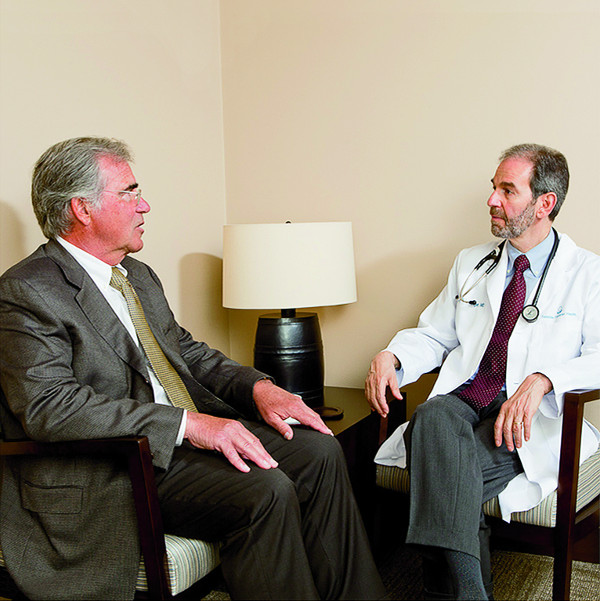For a flat fee, each of his patients gets unlimited time with a doctor who relishes a challenge.
By Katherine Duke '05
[Health] Medical students are often advised: “When you hear hoofbeats, think horses, not zebras.” That
is, start by assuming that a patient’s symptoms indicate a simple, common ailment, not a rare and complicated one. But at his innovative clinic, Dr. Chris Leininger ’69 takes time to focus on the “zebras.”
Opened in 2008, Seattle Premier Health is a “concierge medical practice,” treating an intentionally low number of pa- tients, outside of the traditional medical insurance system. For a flat fee of just over $200 a month, each patient gets access to all commonplace procedures within the clinic—such as annual physi- cals, Pap smears, vaccines and stitches—and can spend as much time with a doctor as desired. “They can come in every day and talk to us, they can call us, they can email us,” says Leininger, whose board certification is in family medicine. The clinic also offers advocacy and assistance when patients need specialized care from other facilities. “We charge the same fee whether you’re 30 years old and have nothing wrong with you or are 70 and have some strange tumor somewhere.”

When Leininger took her on as a patient at the request of her father, she was delirious in the emergency room. A CAT scan showed a lung mass “the size of a tomato” and four brain lesions. “We all as- sumed this was lung cancer spread to the brain,” says Leininger. How- ever, a biopsy showed the lesions were filled with pus. The diagno- sis: disseminated cryptococcosis, a rare fungal infection. The fungus is thought to ride on trucks travel- ing from Canada. Her home was near the highway. With treatment, she became healthy enough to return to work. The NIH is still studying her case.At this late stage of his career, Leininger relishes the more chal- lenging “medical mysteries.” Con- sider the uninsured 45-year-old who had already visited five free clinics in five months, complaining of lethargy and cognitive difficul- ties. Lacking X-ray machines and sufficient time to thoroughly ex- amine her, the doctors had given her pain pills and told her she was depressed. Meanwhile, her symp- toms worsened.
Leininger describes this and other success stories when giving presentations about his clinic. He hopes that at least some aspects of its uncommon business model will catch on, allowing other doctors to devote more time to each patient. Originally affiliated with the city’s nonprofit Swedish Medical Center but now private, Seattle Premier Health employs three physicians and one nurse/receptionist. In- stead of complex insurance billing, monthly fees are deducted from patients’ credit card accounts with the push of a button.
“There’s no waiting room, be- cause patients never wait,” says Leininger, who has about 100 patients. “We have no chart room, because we’re completely elec- tronic, so there’s no paper floating around.” And exam rooms are dec- orated with works by low-income artists whom the clinic agrees to treat for free.
Leininger estimates that, with about two-thirds of the difficult and mysterious cases, he and
his colleagues are at least able to figure out what’s wrong, if not suc- cessfully treat the ailments. And even when they can’t pinpoint a diagnosis after many months, he says, patients often remain loyal to the clinic, because “it’s a comfort to have a doctor you can talk to, who knows you.”